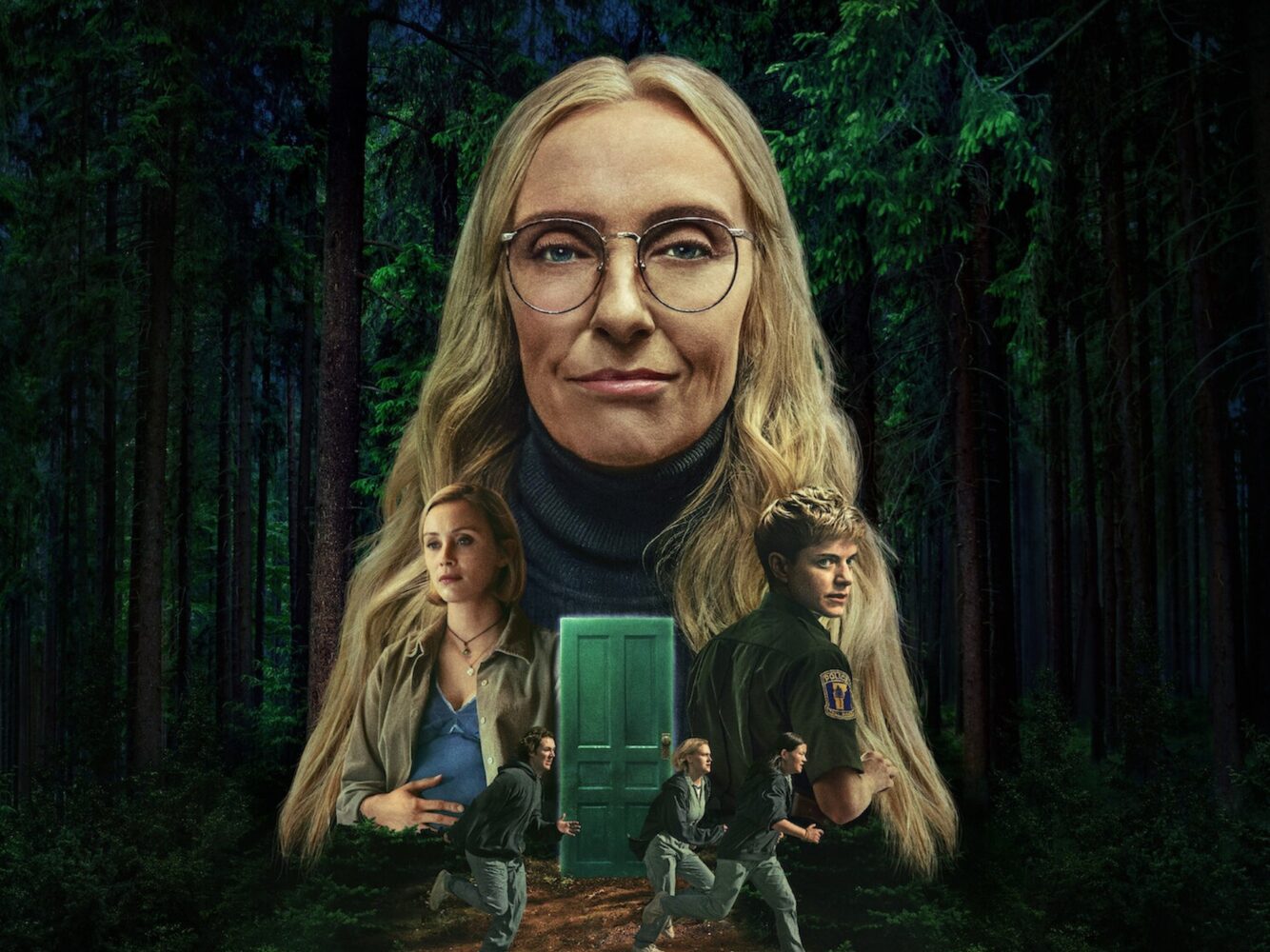TL;DR: Wayward has a killer premise and an even deadlier Toni Collette, but repetition, sluggish pacing, and undercooked writing drag it down. Watch it for Collette if you must, but don’t expect the next great Netflix thriller.
Wayward
There are certain faces that immediately make me sit up straighter on the couch. Toni Collette’s is one of them. She has that rare gift: the ability to make her characters feel like fully lived-in people even when the script hands her cardboard. It’s why I still think about her shriek in Hereditary, why United States of Tara stuck with me far longer than Showtime probably expected, and why I gave Netflix’s new thriller Wayward more patience than it honestly deserved.
Unfortunately, patience is not rewarded here. For all its brooding ambiance, sinister monologues, and atmospheric creepiness, Wayward is a thriller that stalls itself into oblivion. It circles the drain of its own ideas, convinced that repetition equals profundity, while the audience keeps waiting for the deeper cut that never comes. By the end of its eight episodes, I felt less unsettled than I did mildly annoyed — like I’d been locked in a room where everyone keeps whispering “ascend” at me until I stopped caring.
And yet, I couldn’t stop watching Collette. She walks into every scene as Evelyn, the eerily serene leader of Tall Pines Academy, like a wolf wearing the world’s coziest cardigan. Maternal one second, terrifying the next, she breathes menace into a role that desperately needed her gravitas. Without her, I don’t think Wayward would survive at all.
But let’s back up.
The Lure of the Troubled Teen Industry
I have a weird fascination with the so-called “troubled teen industry.” It’s one of those corners of American life that feels simultaneously invisible and omnipresent. Whispered about in parenting forums, exploited in sensational documentaries, and lurking in the background of suburban nightmares, these programs promise reform while often delivering trauma. The industry is essentially unregulated, a Wild West of pseudo-therapeutic methods that frequently veer into psychological torture.
On paper, then, Wayward has a hell of a premise: take this already sinister, under-explored world and frame it as a horror-thriller. Show us what happens when control masquerades as healing. Show us kids who aren’t villains, but survivors of a system built on exploitation. The setup is strong enough that I was half-convinced the series might rise into the pantheon of eerie cult dramas — think The Leftovers, Sharp Objects, maybe even the early shock of Twin Peaks.
But instead of digging deep into that rot, Wayward keeps skimming across the surface. It gestures at darkness without ever fully plunging in.
A First Episode That Promises More Than It Delivers
The show opens like a shot of adrenaline. A teenage boy crashes out of a window and sprints across an open field, panic sweating off his skin. A voice — maternal, otherworldly — floats over the scene. It’s chilling, arresting, and for a brief moment, I thought: Oh, we’re in good hands. This might actually be something.
But then the brakes screech. We jump to Toronto, where two teenage girls — Leila (Alyvia Alyn Lind) and Abbie (Sydney Topliffe) — smoke rooftop cigarettes and carry the kind of quiet sadness that makes guidance counselors sweat. They’re not bad kids, just ones who feel alien in their own lives. Naturally, one of them ends up at Tall Pines Academy, and soon enough, both are swallowed into the machinery of the program.
Meanwhile, Alex (series creator Mae Martin) and their pregnant wife Laura (Sarah Gadon) move into town, conveniently next to the school. You don’t need a tinfoil hat to figure out that this isn’t going to end with peaceful baby showers and quiet maple syrup weekends.
For the first two episodes, I was hooked. The world felt loaded with potential. But then — well, then it all starts to sag.
The Problem of Repetition Disguised as Revelation
Netflix thrillers often have this pacing problem, and Wayward doubles down on it. Instead of building tension, the series leans into circular storytelling. Characters repeat themselves, scenes linger past their natural endpoint, and dialogue spins in loops that feel less like a deliberate hypnotic rhythm and more like the writers ran out of ideas at 3 a.m.
The academy’s methods — the Burrow, Build, Ascend structure, the endless mantras, the ritualistic group “feedback” sessions — should feel increasingly sinister. Instead, the longer we spend with them, the less impact they have. The more times I saw those identical red doors, the less they unsettled me. What should have been suffocating became numbing.
At its best, repetition in psychological horror should destabilize. Think of The Shining, where Jack’s typed pages haunt because they trap us in his unraveling mind. Here, it just feels like someone hit the Netflix equivalent of “repeat all.”
By episode five, I wasn’t scared. I was bored.
Toni Collette, Savior of Murky Material
And then Toni Collette would glide onscreen, and suddenly everything crackled again. She doesn’t just play Evelyn — she embodies her, imbuing the character with contradictions that the script itself doesn’t bother to sketch. Her smile is weaponized softness. Her sudden silences are louder than dialogue. She takes every line, no matter how wooden, and polishes it into menace.
Watching Collette in Wayward reminded me of watching Anthony Hopkins in Westworld. The show itself may be stumbling, but whenever he appeared, the energy shifted. She makes you believe in the world even when the world refuses to believe in itself.
The younger actors deserve credit, too. Lind and Topliffe sell the friendship between Leila and Abbie, grounding the show’s emotional center even as the narrative wanders. Gadon does what she can with Laura, though the script never quite knows whether to treat her as a puzzle box or a person. And Martin — well, they’re caught in the unenviable position of trying to act in a show they also created, which is a lot like trying to conduct an orchestra while also playing the cello.
Still, this is Collette’s show. Without her, Wayward would collapse like a haunted soufflé.
Where It All Falls Apart
By the time the finale rolled around, I was exhausted. Not devastated, not haunted — just weary. Wayward tries to be a critique of systems that promise growth while delivering conformity, but it ends up embodying its own metaphor. Like Tall Pines itself, the series insists it’s about transformation, but what it really offers is stasis.
The worst part? You can see the better show hiding inside this one. If the writers had trusted the darkness of their subject matter, if they’d let the story accelerate instead of idling, if they’d stopped mistaking atmosphere for depth — we might have had something truly compelling. Instead, we got something frustratingly close to meaningful but ultimately hollow.
Verdict
Wayward is not a disaster, but it’s not a discovery either. It’s a muddled, slow-burning thriller that gestures toward brilliance and then circles the same ideas until its impact wears thin. Toni Collette delivers a bone-chilling performance that almost single-handedly saves the show from itself, but the rest of the series never lives up to her menace. Netflix has given us yet another atmospheric thriller that strays too far off the path to find its way back.







